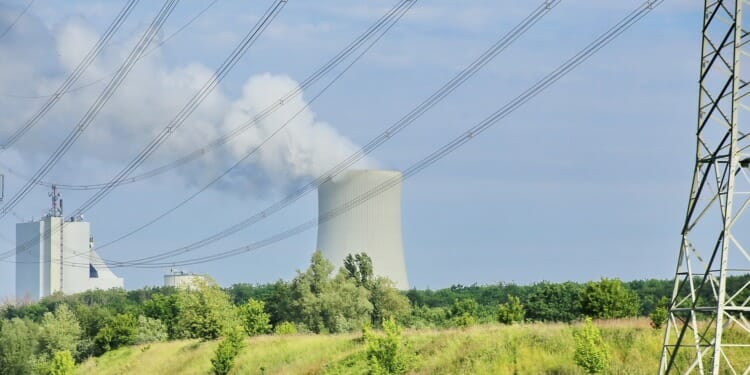Norway derives a major portion of its wealth from oil and gas within the North Sea. However, the election taking place on Monday, has ignited concerns about fossil fuels.
Bloomberg reports that the country is struggling to unite its interest in environmental consciousness and electric cars, whilst drawing its financial dependence on fossil fuels to a halt.
While the country is the third-largest gas exporter in the world with fossil fuels being roughly 50% of its exportation of goods, Norway is widely regarded as a committed green power user, using a “hydro-powered energy grid.”
Former Conservative Minister and head of Norway’s oil lobby, Anniken Hauglie, said:
“It goes without saying that there are a number of forces now on the rise that will have major negative consequences for Norway, not just for the industry. This will weaken our ability to meet our climate commitments, but also to contribute to the much-needed transition. Some believe it is possible to separate the oil and gas industry from the green shift. I think that is infinitely naive.”
Norway has been encouraged by International authorities to follow the example of Denmark, which unlike Norway, is planning on withdrawing the generation of fossil fuels by 2050 and is currently stopping its “exploration for new reserves”. But Denmark is not Norway and does not rely on fossil fuels to the same extent.
Oil and Energy Minister, Tina Bru believes that an end to Norway’s fossil fuel industry is unimaginable, as it reportedly provides over 40% of the country’s exports.
Related Articles: Green Recovery Know-How From the Nordics | Costa Rica and Denmark to End Oil and Gas Production
Bru said: “My question is always: What happens after you stop? What else are you going to do to make sure the world reaches its climate goals? It might affect our own climate budget, but it’s not going to make a difference globally.”
According to AP, 70% of all new cars sold in Norway are electric, and the Norwegian government has indicated an increase in environmental taxes. During September, the country suggested that the current tax system should be amended, whereby a minority of explorers will face a burden of greater risk if they are oil searching.
This objective is favoured by the Labour Party, which has stated that it is hoping to achieve a similar future for the environment. However, Labour has also pledged that it will carry out a more “interventionist industrial policy” which backs innovative sustainable industries such as blue hydrogen, carbon capture and storage, as well as wind power.
Despite the surprising common ground shared by Labour and the Conservatives, Labour is expected to engage in “horse trading” after the election, and this is likely to be a tense experience with unpredictable outcomes for now. This is because, the country’s Socialist Left have already said that its approval will not come easily, whilst the Centre Party has called for a much more radical response towards energy policy.
Labour’s Energy spokesman, Espen Barth Eide said: “Right now our plan is to run together with our two old friends from these parties.”
Eide added: “We still think this works. But if their opening position is to end exploration, that is not going to happen. … We will try to have a mature dialogue about the next phase of the oil industry.”
The prediction for the election will be given out at 9pm (Norway time). The last tally of parliament, typically occurs during the night, but experts claim that the results could be attained earlier, as a large number of people have managed to vote through advance polling.
Whilst Norway’s heritage of maintaining its commitment to Green Power still stands, the country’s Labour and Conservative parties are shying away from taking more aggressive environmental action. Thus, the country’s green goals may have a more promising future under a socialist or centrist ruling government. However, with Labour being ahead in the opinion polls, and with the Conservatives being the current government, such a drastic shift seems unlikely.
Stay tuned for an update.
Editor’s Note: The opinions expressed here by Impakter.com columnists are their own, not those of Impakter.com.— In the Featured Photo: Rostock Power Station, Kraftwerk, Rostock, Germany. Featured Photo Credit: ETA+








